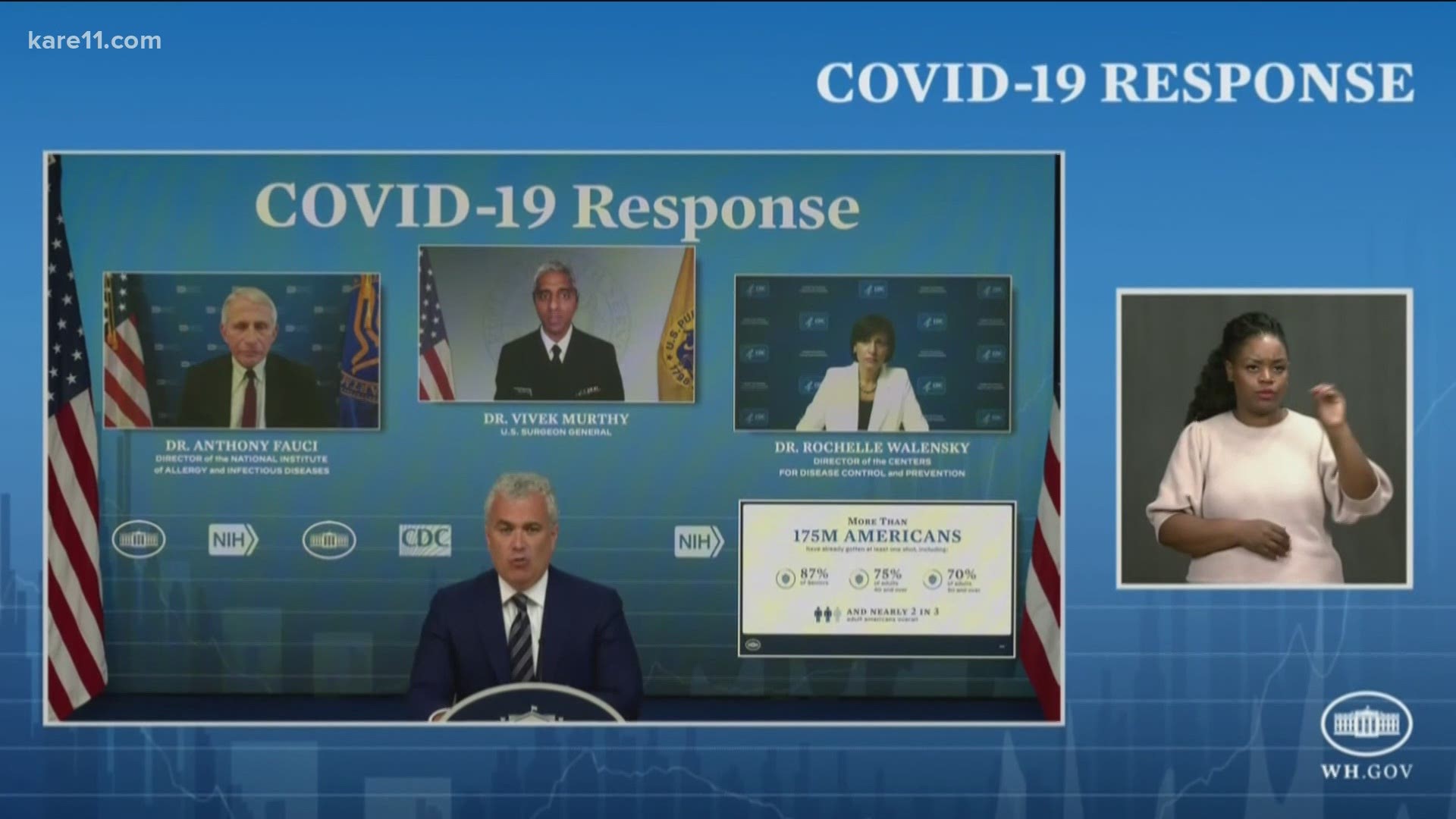State health officials are offering updated guidance in the coming months for COVID-19 safety precautions.
Children ages 12 and older are eligible to get vaccinated, and they should take advantage of this, Minnesota Health Commissioner Jan Malcolm said in a news release.
Officials also stressed the importance of continued COVID testing, especially for children ages 12 and under as they are not yet eligible for the vaccine.
The Minnesota Department of Health made several recommendations for people who aren't fully vaccinated against COVID-19 this summer.
- People who are not fully vaccinated should get tested if they are in contact with someone who has COVID-19.
- People who are not fully vaccinated should also get tested every two weeks if they have frequent contact with people outside their household, or if they participate in activities where social distancing may not be possible.
- People who are not fully vaccinated should get tested after travel within the U.S.
MDH said vaccinated or not, anyone who travels internationally should get tested once they return to Minnesota.
"It's important to remember children younger than 12 are still not eligible for the COVID-19 vaccine and can still be exposed or become sick with COVID-19," MDH Assistant Commissioner Dan Huff said in the news release. "If your kids participate in activities where they may be exposed, or in settings with others outside your household, like day care or youth camps, they should get tested every two weeks."
MDH made these testing recommendations:
Symptoms
- People with COVID-19 symptoms should get tested immediately, regardless of vaccination status.
People who are not fully vaccinated
- People who are not fully vaccinated and were in contact with someone who has COVID-19 should get tested at least five days after they were close to the person. People who tested positive for COVID-19 within the past three months do not need to get tested as long as they do not develop new symptoms.
- People who are not fully vaccinated and in frequent contact with people outside of their household should get tested every two weeks. For example, children and staff in child care or youth camps/programs, unvaccinated adults who work with the public in settings such as retail or food service.
- People who are not fully vaccinated and have taken part in activities that put them at higher risk for COVID-19 because they cannot physically distance as needed to avoid exposure. For example, attending large gatherings or being in crowded or poorly-ventilated indoor settings.
Travel
- People returning from international travel, regardless of vaccination status.
- People who are not fully vaccinated and returning from domestic travel.
Health care
- Health care workers should get tested after domestic travel and after a high-risk exposure, regardless of vaccination status, due to the vulnerable population they serve.
Special circumstances
- People with immunocompromising conditions in consultation with their health care provider.
- People who have been asked or referred to get tested by their health care provider, or state, tribal, local or territorial health department.
- Specific recommendations will be provided in the setting of clusters or an outbreak.
- The updated recommendations can be found under "Who Should Get Tested" on the MDH COVID-19 Testing webpages.

